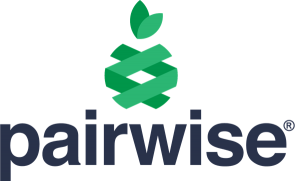MSU Potato Breeder Develops Reduced Sucrose Potato

Dave Douches, professor in the Department of Plant, Soil and Microbial Sciences and director of the MSU Potato Breeding and Genetics Program.
A new genetically engineered potato developed by Michigan State University potato breeder Dave Douches has been granted exemption from the biotechnology regulations placed on genetically modified products by the U.S. Department of Agriculture’s Animal and Plant Health Inspection Service.
The Kal91.3 potato is bred from an MSU potato variety named Kalkaska. The newly developed potato can be stored in cool temperatures for long periods of time without sucrose, the compound that sugar is typically stored in potatoes as, converting into reducing sugars such as fructose and glucose. Without as many reducing sugars, off-color browning and caramelization can be minimized in the Kal91.3 potato, leading to healthier and higher-quality products, including potato chips.
The Kal91.3 potato can also reduce the environmental impact of the growing process without as many fertilizers and pesticides needed to maintain the potato during storage.
Sucrose is broken down in potatoes by vacuolar acid invertase, an enzyme reactive to the external environment of plants — such as temperature. Roughly 10 years ago, Jiming Jiang, an MSU Foundation Professor in the departments of Horticulture and Plant Biology, published findings on how to silence, or suppress, the gene that produces vacuolar acid invertase in potatoes.
This discovery sparked interest from Douches, a professor in the Department of Plant Soil and Microbial Sciences and director of the MSU Potato Breeding and Genetics Program, to find a way to correct the sugar imbalance that can occur in some of Michigan’s commercial chipping potatoes.
“I’ve always felt as the potato breeder at MSU that using biotechnology as a tool to improve potatoes would be worthwhile,” Douches said. “We have chipping potatoes that work well and do their job, but I wanted to take this gene and find out whether it could improve a potato that was having a problem with its sugars.
“Breeding potatoes is quite challenging because we need so many important traits to line up, but in this case, we just needed one trait to correct the problem. Using this biotech strategy, we succeeded in making a potato that was giving us problems into one that’s now commercially valuable.”
After multiple experiments carried out from 2014-2015, Douches developed an RNA interference construct that silenced vacuolar acid invertase in Kalkaska potatoes.
From 2016-2023, Douches tested the agronomic characteristics of the Kal91.3 potato and found it had a good shape, size and specific gravity — the measurement of starch content compared to water in the potato.
Historically, many farmers have stored chipping potatoes at or around 50 F to avoid vacuolar acid invertase from responding to cooler temperatures and converting sucrose into reducing sugars, but doing so has left potatoes more susceptible to storage rots and moisture loss. The Kal91.3 potato, however, has shown the ability to be stored at 40 F while maintaining its sugar balance.
“There’s a double value to it,” Douches said. “The first is that we stabilize the sugars. The invertase silencing slows down the conversion of sucrose into fructose and glucose, so it stabilizes the potato’s sugar while in storage. It’s settling the potato down from a metabolism point of view. The second is that we benefit from being able to store the potato for longer periods of time at cooler temperatures.”
In January, Douches received notice from USDA APHIS that the Kal91.3 potato proved not to pose an increased plant pest risk relative to its conventionally bred counterpart, thus making it exempt from the biotech regulations USDA APHIS imposes on other genetically modified products. This news meant regulators from USDA APHIS concluded that the Kal91.3 potato could’ve otherwise been developed using traditional breeding techniques.
For more news of interest to the agriculture industry, subscribe to Gourmet News.
Pairwise Develops World’s First Seedless Blackberry
 Pairwise, a company pioneering genetics-based innovation in food and agriculture, has developed the world’s first seedless blackberry. Created using the company’s proprietary Fulcrum Platform, a complete suite of novel tools for CRISPR application in plants, this is the first time seedlessness has been achieved in any caneberry.
Pairwise, a company pioneering genetics-based innovation in food and agriculture, has developed the world’s first seedless blackberry. Created using the company’s proprietary Fulcrum Platform, a complete suite of novel tools for CRISPR application in plants, this is the first time seedlessness has been achieved in any caneberry.
“We are thrilled to share this breakthrough achievement from our talented R&D team. Pairwise scientists have used their deep knowledge of plant genetics, broad suite of CRISPR tools, and multiplex editing techniques to eliminate the hard pits in berry fruit, creating soft, small seeds like those found in grapes and watermelon that are commonly labeled as seedless,” said Ryan Bartlett, Pairwise chief technology officer. “The result is the first seedless blackberry in the world. We expect that this trait will not only transform the blackberry market, but it also lays the groundwork for accelerated progress in removing seeds and pits in many other fruits such as cherries.”
Recent innovations in produce have been rapidly adopted due to the significant benefits they provide consumers, such as improved flavor, consistency, and convenience.
“The berry variety we edited is consistently sweet year-round and holds up well during shipment; now, consumers will have the option to choose a nutritious blackberry without seeds that also reliably delivers great flavor and quality,” said Haven Baker, Pairwise co-founder and chief business officer. “Blackberries are a snackable fruit with significant health benefits; however, data indicates that more than 30 percent of berry buyers do not like the seeds, and many more do not even buy the fruit because of the seeds.”
In addition to creating the first seedless caneberry, Pairwise has successfully edited the same variety to eliminate thorns and create a more compact plant that delivers benefits for harvesters, growers and the environment. The thornless and compact traits enable more efficient fruit harvesting and improved productivity and profitability for growers. The new compact trait means the plants are smaller and can be planted at a higher density per acre. Early data from Pairwise-led trials indicate the potential to greatly increase yield per acre while necessitating only a minimal increase in inputs – meaning the water and land used per crate of fruit harvested decreases significantly.
“Our high-density compact and thornless traits contribute to a more sustainable food system. The absence of thorns and reduced height of the compact plants allow berry harvesters to better access the fruit and leave less on the plant, reducing food waste and further improving the growers’ economics. With the precision of CRISPR, we’re able to develop these thornless and compact traits without sacrificing consistency in flavor and quality for consumers,” said Baker. “We’re excited to advance these berries into the next phase of product development, including outdoor field trials, as we work toward scaling up and making them available to the public in a few years.”
“A key challenge in our food system is helping people eat more high-quality, healthy foods. As part of our drive to increase the consumption of fruit and vegetables, we’re working to provide consumers with new, highly nutritious food options with improved flavor and convenience,” said Tom Adams, Pairwise Co-Founder and CEO. “With a deep understanding of the plant genome, an accurate, efficient, and scalable process, and streamlined pathway to commercialization, we are not only creating new products with our proprietary CRISPR technology, we are creating a new era of innovation in agriculture.”
Learn more about Pairwise and its Fulcrum Platform here.
Pairwise is pioneering the application of CRISPR technology in food and agriculture. The company brings together leaders in agriculture, technology, and consumer foods to harness the transformative potential of new genomics technologies to create innovative new products. Pairwise is working to develop new varieties of crops, and to partner with organizations that seek to deliver innovation across the plant-based economy. Backed by industry leading investors Deerfield, Aliment Capital, Leaps by Bayer, and Temasek,
Pairwise raised $90 million in a successful series B funding round in February 2021, bringing total fundraising to $115 million. The company was founded by Chief Executive Officer Tom Adams and Chief Business Officer Haven Baker, with scientific co-founders J. Keith Joung, Lead Translator at Arena BioWorks; David Liu, Director of the Merkin Institute of Transformative Technologies in Healthcare, and Vice-Chair of the Faculty at the Broad Institute of Harvard and MIT; and Feng Zhang, McGovern Investigator and a professor at MIT. For more information, visit Pairwise.com, and learn more about the differentiating Pairwise Fulcrum Platform here.
For more news of interest to the produce industry, subscribe to Gourmet News.
IFCO Launches Marina, Digitally Enabled Reusable Fish Crate
 IFCO, a leading provider of reusable packaging containers, has launched Marina, the smart reusable IFCO Fish Crate. Designed in close collaboration with the fishing industry, Marina brings greater protection, efficiency and sustainability to the fresh fish and seafood supply chain. Featuring track-and-trace Bluetooth Low Energy tags and QR codes, the Marina Fish Crate enables real-time data collection, improving the cold chain management of fresh and chilled products along the entire fish and seafood supply chain, from ship to all points of sale.
IFCO, a leading provider of reusable packaging containers, has launched Marina, the smart reusable IFCO Fish Crate. Designed in close collaboration with the fishing industry, Marina brings greater protection, efficiency and sustainability to the fresh fish and seafood supply chain. Featuring track-and-trace Bluetooth Low Energy tags and QR codes, the Marina Fish Crate enables real-time data collection, improving the cold chain management of fresh and chilled products along the entire fish and seafood supply chain, from ship to all points of sale.
Single-use expanded polystyrene boxes can break down into microplastic pollution and contaminate the marine food chain and human health, so governments around the world are increasingly tightening regulations and introducing EPS bans. As a result, many producers, wholesalers and retailers in the fishing industry have made eliminating EPS boxes and switching to sustainable packaging a priority. The IFCO SmartCycle pooling system ensures the switch to Marina is simple, seamless and sustainable.
Nestable when empty, securely stackable when full, the Marina Fish Crate saves space on ships and on shore, cutting carbon emissions in transport and improving handling conditions. Its uniform dimensions are compatible with existing supply chains, automated logistics systems and the IFCO Plastic Pallet Dora.
Francesca Amadei, vice President Southern Europe at IFCO, highlights the unique advantages of the Marina Fish Crate: “Marina is the result of intense collaboration across the fishing industry. We’ve taken on board the unique demands of every step of the fresh fish and seafood supply chain in our R&D efforts.”
The Marina Fish Crate offers a sustainable and efficient complete packaging solution. Like all IFCO Reusable Packaging Containers (RPCs) Marina uses fewer natural resources throughout its life cycle compared to single-use packaging. And, unlike conventional fish boxes made from expanded polystyrene (EPS) that are typically sent to landfills or end up as marine pollution, Marina is 100% recycled at the end of a long service life into new products.
Inigo Canalejo, vice president ESG and strategic marketing at IFCO, highlights the long-term benefits of Marina for the fishing industry and the planet:
“We see it as our responsibility to improve the environmental sustainability of every category of the fresh grocery supply chain. Our Marina Fish Crate is a smart, innovative packaging solution that will have a lasting positive impact on the fresh fish and seafood supply chain. We’re proud to have designed a sustainable and more efficient alternative to harmful expanded polystyrene containers.”
For more news of interest to the seafood industry, subscribe to Gourmet News.






